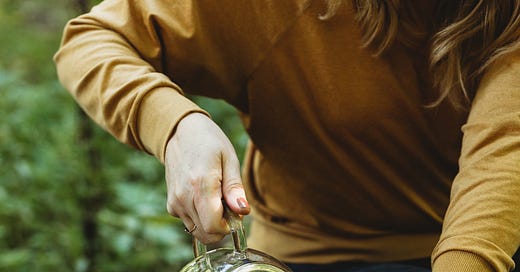Sunday Sip: does "cozy" content marginalize women?
An argument for the importance of warmth, comfort, and homey pursuits.
Happy Sunday, friends! In case you missed my post last week, I’m switching up my Substack format. Look for weekly newsletter-style recaps + a “deep steep” of a topic that’s on my mind, on Sundays - my favorite day for slow reads with a cup of tea.
Recently I saw a comment in a podcast review that caught me off-guard. It said something to the effect of, “…
Keep reading with a 7-day free trial
Subscribe to The Kettle with Meagan Francis to keep reading this post and get 7 days of free access to the full post archives.




